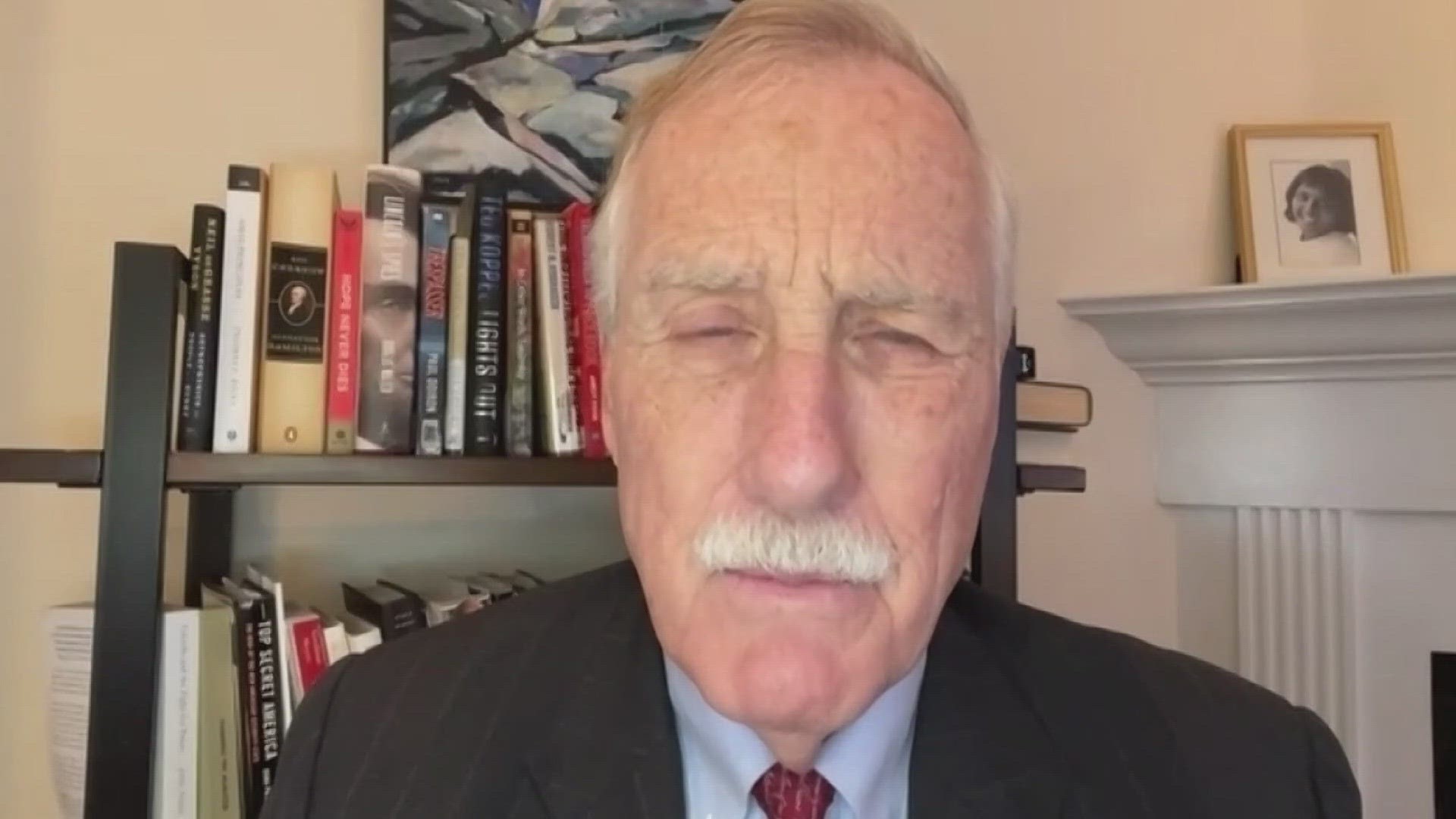AUGUSTA, Maine — During a four-day trip across the Middle East, Senator Angus King urged Israeli leaders to limit civilian casualties as it carries out military operations in Gaza.
"It's not that you can’t confront Hamas," Senator King said during a virtual press conference Tuesday. "It’s a question of how it's done and that minimizing civilian casualties is important."
King met with Israeli Prime Minister Benjamin Netanyahu over the weekend, cautioning him that the tactics Israel is using against Hamas are "to the detriment of Israel’s long-term interests."
The trip comes three months to the day after Hamas militants attacked Israel—killing more than 1,200 people. Now, the retaliation to that attack has caused a humanitarian crisis in Gaza, with more than 20,000 Palestinians killed, and many more displaced, according to the Hamas-run Gaza Health Ministry.
On Tuesday, King affirmed Israel’s mission at large to defeat Hamas. "We don't object to Israel's right to defend itself, indeed its responsibility to defend itself," King said.
He also resisted calls for a ceasefire, saying it would help Hamas regroup, and entertained the possibility of a pause in fighting only to free some of the more than one hundred hostages estimated to be in the custody of Hamas in Gaza.
Much of the focus of King’s trip centered on efforts to prevent the war from spreading across the Middle East. Already, fighting has broken out between Israel and Iran-backed militia Hezbollah in neighboring Lebanon.
In addition, Iran-backed Houthi rebels based in Yemen have launched rockets toward commercial ships in the Red Sea—a crucial passage for global trade—leading the U.S. Navy to shoot down several missiles and drones, according to NBC News. King warned Tuesday that if these attacks continue, he’ll be more apt to support an increase in military action by the United States against the Houthis.
"At what point do you shoot the archer instead of the arrow?" King asked. "There has to be some response to this if it continues."
King said he also discussed the topic during a meeting on the trip with Saudi Arabia’s leader Crown Prince Mohamed Bin Salman—whose government has long supported the efforts of the Sunni-dominated Yemeni government against the Shiite Houthis.

